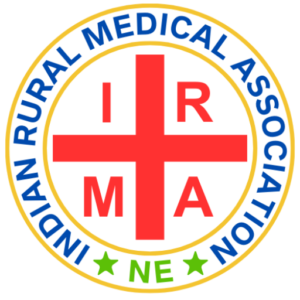About Our Institute

Dr. Biral Chand Mullick
Founder of Indian Rural Medical Association
About Indian Rural Medical Association:
In 1979, Dr. Biral Chand Mullick, (MBBS, DGO, PhD), established the Indian Rural Medical Association (IRMA) and initiated a medical training program in Community Medical Service (CMS) and Essential Drugs (ED). Gradually, the training program expanded to encompass all of West Bengal and then adjacent states as well. Our first CMS training center was established in Barpeta Road, Assam. Since then, we have been conducting this program in all the districts of Assam under the direction of the Health Services, Government of Assam, and the Director of Medical Education.
The Indian Rural Medical Association (IRMA) is a national organization for rural doctors, health workers, and all systems of doctors.
Objectives:
The objective of the Indian Rural Medical Association (IRMA) is:
To promote Health Education, Research and development programmes all over India.
To bring rural health practioners of all disciplines under on training network for sustainable health development and improved family welfare.
To provide. training in primary health care and modern methodologies to rural health practioners and lay health workers to improve their ability to serve the rural people.
To increase the rural populations health awareness.
To improve communication among health care provides of all disciplines.
Legal Status:
CMS persons have legal rights to administer the essential drugs approved by WHO. Even Hon’ble Supreme Court of India consists of Hon’ble Justice S. Rejendra Babu J. and Hon’ble Justice Shivraj V. Patil J. has delivered the judgement on 14.02.2003 providing the rights to serve the rural medical diploma holders by prescribing medicines. The news bulletin published in “THE TIMES OF INDIA” Mumbai dt. 19.02.2003 is reproduced below:
Rural medical diploma holders can prescribe medicines: SC Time news network
New Delhi: A large number of diploma holders in Community Medical Service (CMS) can now prescribe medicine, the Supreme Court has ruled. The Court said, “It is unjust to allow them only to treat the rural population without the consequential right to prescribe medicines or issue medical certificates.”
A Bench comprising Justice S. R. Babu and S. V. Patil set aside a Calcutta High Court Judgement and held, “the right to prescribe drugs of a system of medicine would be synonymous with the right to practice that system of medicine”.
In West Bengal, the CMS diploma holders were employed only to man the health centers and subsidiary health centers to treat common diseases among the rural population, including communicable diseases, malnutritional states, snake bites and insecticidal poisoning.
The bench readdressed their grievances and said the appellants were validly holding the rights to treat certain diseases. “So their right to issue prescriptions or certificates cannot be detached from their right to treat” the court added. It also held that the right to treat.” One cannot and shall not be separated from the other,” the Court added.
“Once the right to treat is recognized, then the right to prescribe medicine or issue necessary certificates flows from it” the Bench said.
The West Bengal government was apprehensive that with the registration of CMS in the State medical register, they would then insist on their names being registered in the Indian Medical Register, which maintains the list of practicing doctors.

